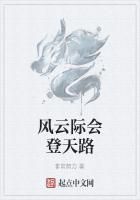I define, then, commerce or exchange as an act of society.
The negro who sells his wife for a knife, his children for some bits of glass, and finally himself for a bottle of brandy, is not free.The dealer in human flesh, with whom he negotiates, is not his associate; he is his enemy.
The civilized laborer who bakes a loaf that he may eat a slice of bread, who builds a palace that he may sleep in a stable, who weaves rich fabrics that he may dress in rags, who produces every thing that he may dispense with every thing,--is not free.
His employer, not becoming his associate in the exchange of salaries or services which takes place between them, is his enemy.
The soldier who serves his country through fear instead of through love is not free; his comrades and his officers, the ministers or organs of military justice, are all his enemies.
The peasant who hires land, the manufacturer who borrows capital, the tax-payer who pays tolls, duties, patent and license fees, personal and property taxes, &c., and the deputy who votes for them,--all act neither intelligently nor freely.Their enemies are the proprietors, the capitalists, the government.
Give men liberty, enlighten their minds that they may know the meaning of their contracts, and you will see the most perfect equality in exchanges without regard to superiority of talent and knowledge; and you will admit that in commercial affairs, that is, in the sphere of society, the word superiority is void of sense.
Let Homer sing his verse.I listen to this sublime genius in comparison with whom I, a simple herdsman, an humble farmer, am as nothing.What, indeed,--if product is to be compared with product,--are my cheeses and my beans in the presence of his "Iliad"? But, if Homer wishes to take from me all that Ipossess, and make me his slave in return for his inimitable poem, I will give up the pleasure of his lays, and dismiss him.I can do without his "Iliad," and wait, if necessary, for the "AEneid."Homer cannot live twenty-four hours without my products.Let him accept, then, the little that I have to offer; and then his muse may instruct, encourage, and console me.
"What! do you say that such should be the condition of one who sings of gods and men? Alms, with the humiliation and suffering which they bring with them!--what barbarous generosity!"...Do not get excited, I beg of you.Property makes of a poet either a Croesus or a beggar; only equality knows how to honor and to praise him.What is its duty? To regulate the right of the singer and the duty of the listener.Now, notice this point, which is a very important one in the solution of this question: both are free, the one to sell, the other to buy.Henceforth their respective pretensions go for nothing; and the estimate, whether fair or unfair, that they place, the one upon his verse, the other upon his liberality, can have no influence upon the conditions of the contract.We must no longer, in making our bargains, weigh talent; we must consider products only.
In order that the bard of Achilles may get his due reward, he must first make himself wanted: that done, the exchange of his verse for a fee of any kind, being a free act, must be at the same time a just act; that is, the poet's fee must be equal to his product.Now, what is the value of this product?
Let us suppose, in the first place, that this "Iliad"--this chef-d' oeuvre that is to be equitably rewarded--is really above price, that we do not know how to appraise it.If the public, who are free to purchase it, refuse to do so, it is clear that, the poem being unexchangeable, its intrinsic value will not be diminished; but that its exchangeable value, or its productive utility, will be reduced to zero, will be nothing at all.Then we must seek the amount of wages to be paid between infinity on the one hand and nothing on the other, at an equal distance from each, since all rights and liberties are entitled to equal respect; in other words, it is not the intrinsic value, but the relative value, of the thing sold that needs to be fixed.The question grows simpler: what is this relative value? To what reward does a poem like the "Iliad" entitle its author?
The first business of political economy, after fixing its definitions, was the solution of this problem; now, not only has it not been solved, but it has been declared insoluble.
According to the economists, the relative or exchangeable value of things cannot be absolutely determined; it necessarily varies.















